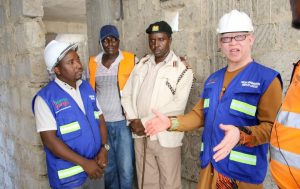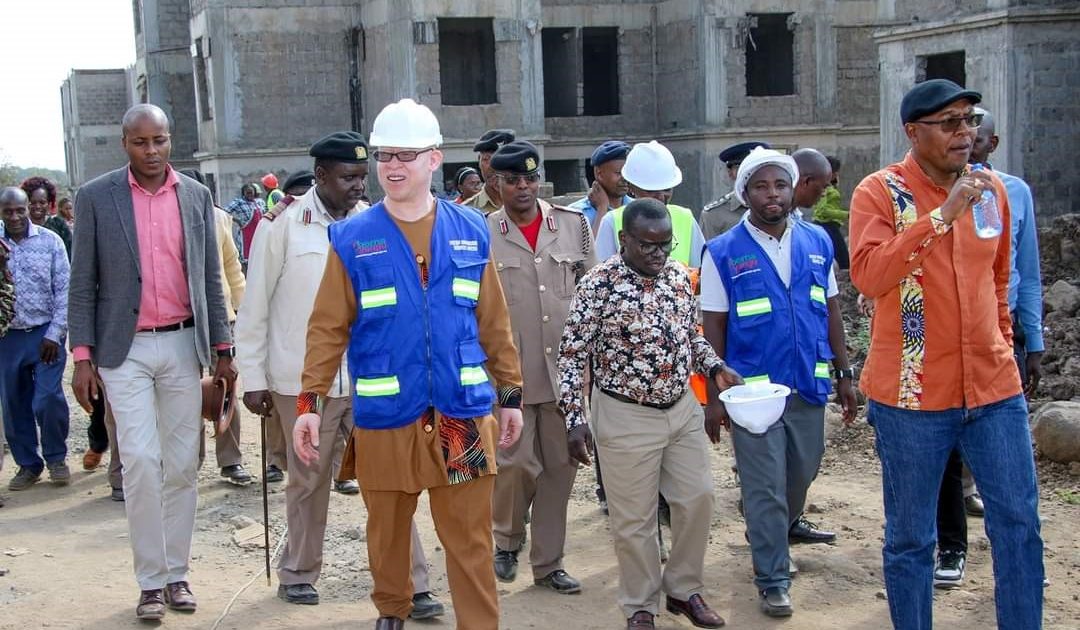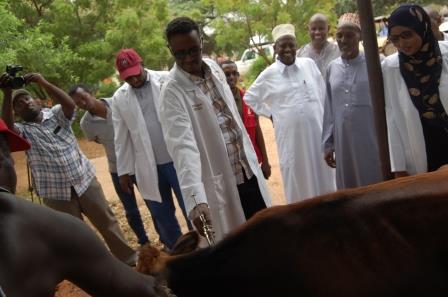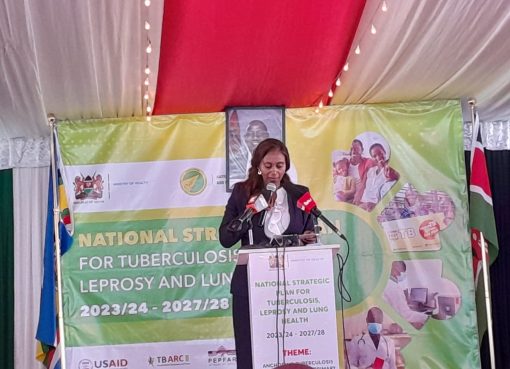Government Spokesperson, Isaac Mwaura, has lauded the construction progress of Affordable Houses in the Makenji area of Murang’a County.
Mwaura, speaking when he inspected the project on Tuesday, stated that the construction of 220 house units, is at 45 per cent complete.
He said the project is expected to be completed by March next year, urging locals to register with the Boma Yangu platform, so as to secure a unit once the project is complete.

The nine housing blocks, occupying an area of about two acres, comprise 100 two-bedrooms, 60 three-bedrooms, and 60 studio units.
“These units will be affordable to the majority of Kenyans, and I appeal to local residents to be on the frontlines in registering with the Boma yangu platform and paying the required deposit so as to secure a unit.” Said the spokesperson.
Mwaura further said the location of the houses is convenient to people working in Nairobi, Thika, and neighbouring areas.
“Fare from here to Nairobi is Sh150, and the houses are located along Thika-Kenol-Marua Highway, so these units are easily accessible and will be convenient to people working in Nairobi, Kiambu, and Murang’a,” he added.
Mwaura continued, “This project is employing on a daily basis about 150 workers directly and many more indirectly.”
Apart from the housing units, the project will bring in other amenities, including the upgrading of Makindi Primary School, the construction of a dispensary, and a modern market.
“The project is earmarked to greatly benefit the people of this area. Already, economic activities at Kabati Trading Centres are on rise, considering people employed in this site.” Added Mwaura.
He lauded the Affordable Housing project being implemented by the Kenya Kwanza Administration, saying the units will uplift living standards for many Kenyans who have poor shelters.
“The government is working on an improved technology, which hastens the construction of housing units. Our target is to have more than 700,000 housing units by the end of this term. Already construction of Affordable Houses is going on in various parts of the country, and some have already been completed,” he averred.
A local community leader, Stephen Mugo, underscored the project, saying it has provided employment to scores of local young people.
Mugo observed the engagement of the youths, and has reduced criminal activities in the area, asking the contractor to consider employing more young people from Kandara Sub-county.
“We are happy with this project since it has provided jobs to our children. Initially, we had many criminal cases in this area of Kabati, but now our youth have a source of income. We ask the government to consider building more houses in this region since 220 units is a small fraction,” remarked Mugo.
The site clerk of works, Michael Mwalolo, said apart from the employed workers, the project has offered internship opportunities to students pursuing various technical courses.
The internship programme, he noted, has enabled students to gain on-the-job training experience, adding that the National Institute of Technical Authority (NITA) has also assessed some of the masons working in the site who have no valid documents so as to provide them with certificates.
Mwololo said construction of the houses, which kicked off in November last year, was slated for completion this month, but due to heavy downpours experienced in the months of March and April, the completion time was extended to March next year.
Murang’a County Commissioner, Joshua Nkanatha, said the local police post will be expanded and more officers will be deployed so as to provide security in the area.
Nkanatha warned the workers against stealing construction materials after concerns were raised about the theft of some of the construction items.
“I appeal to workers to take care of the construction materials; stealing will land one in prison, and it’s ideal to ensure equipment and materials you are provided for the work are taken care of,” the Commissioner told the workers.
The Spokesman’s team also visited and inspected the Maragua Water Project, where more than 50, 000 households are slated to be connected with clean water for domestic use and another 843 households get water for irrigation.
By Bernard Munyao and Anita Omwenga





